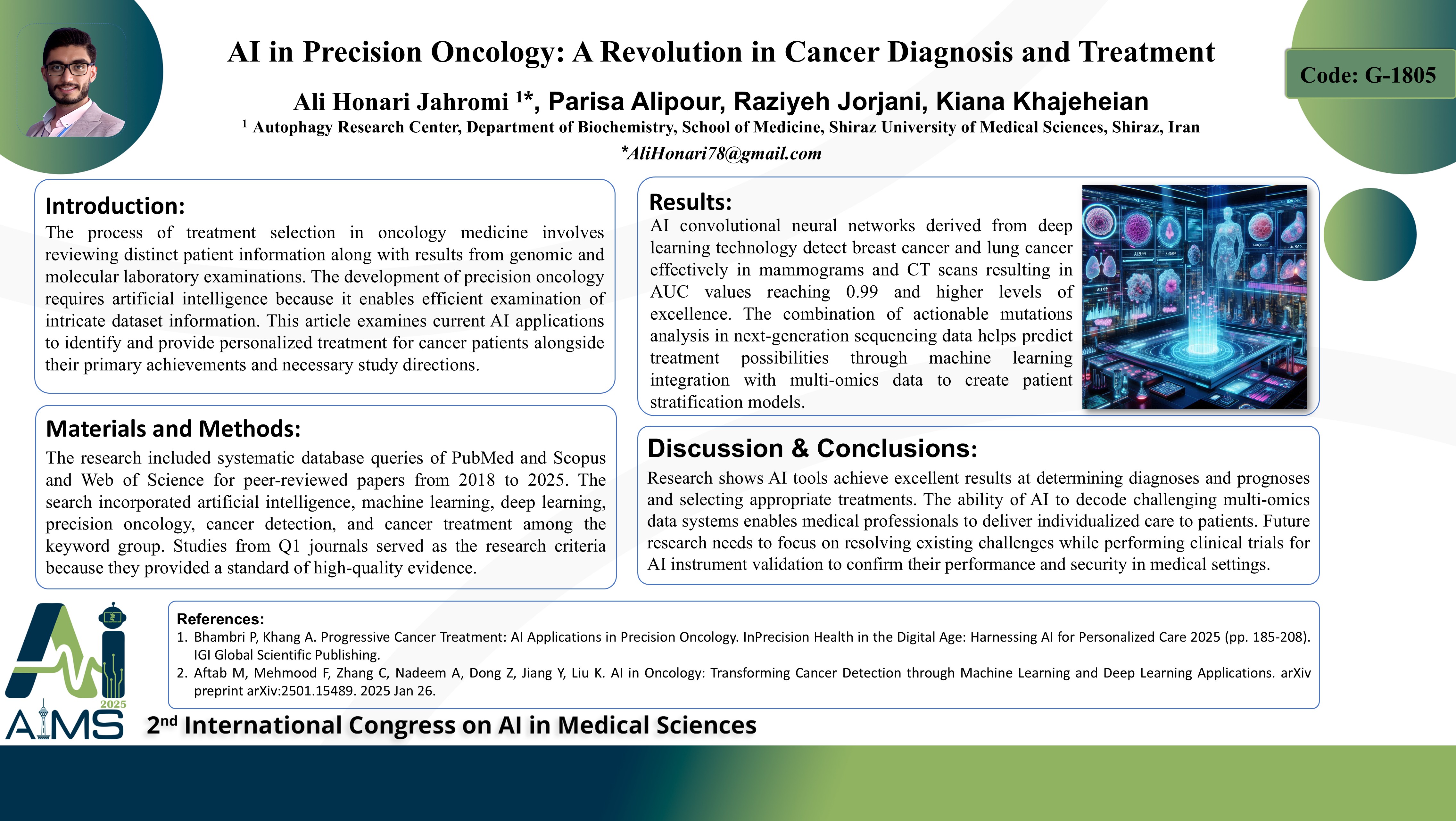Artificial Intelligence in Precision Oncology: A Revolution in Cancer Diagnosis and Treatment
Code: G-1805
Authors: Ali Honari Jahromi * ℗, Parisa Alipour, Raziyeh Jorjani, Kiana Khajeheian
Schedule: Not Scheduled!
Tag: Cancer Diagnosis & Treatment
Download: Download Poster
Abstract:
Abstract
Background and Aims: The process of treatment selection in oncology medicine involves reviewing distinct patient information along with results from genomic and molecular laboratory examinations. Medical disease databases now require advanced computational approaches and artificial intelligence stands out as an effective technology to discover significant outcomes within these vast datasets. The development of precision oncology requires artificial intelligence because it enables efficient examination of intricate dataset information. This article examines current AI applications to identify and provide personalized treatment for cancer patients alongside their primary achievements and necessary study directions. Method: The research included systematic database queries of PubMed and Scopus and Web of Science for peer-reviewed papers from 2018 to 2025. The search incorporated artificial intelligence, machine learning, deep learning, precision oncology, cancer detection, and cancer treatment among the keyword group. Studies from Q1 journals served as the research criteria because they provided a standard of high-quality evidence. Results: Cancer detection experienced major progress because deep learning models excel at determining malignant cases through advanced image analysis of radiological images and pathological samples. AI convolutional neural networks derived from deep learning technology detect breast cancer and lung cancer effectively in mammograms and CT scans resulting in AUC values reaching 0.99 and higher levels of excellence. The combination of actionable mutations analysis in next-generation sequencing data helps predict treatment possibilities through machine learning integration with multi-omics data to create patient stratification models. AI-based tools speed up treatment development processes through their capability to find and repurpose drugs at a faster rate. Conclusion: Precision oncology shows strong potential after adding AI because research shows AI tools achieve excellent results at determining diagnoses and prognoses and selecting appropriate treatments. The ability of AI to decode challenging multi-omics data systems enables medical professionals to deliver individualized care to patients. Current AI applications face ongoing barriers regarding the quality of their data sources together with unclear model explanations and clinical procedures. Future research needs to focus on resolving existing challenges while performing clinical trials for AI instrument validation to confirm their performance and security in medical settings.
Keywords
Artificial Intelligence, Oncology, Machine Learning, Cancer
